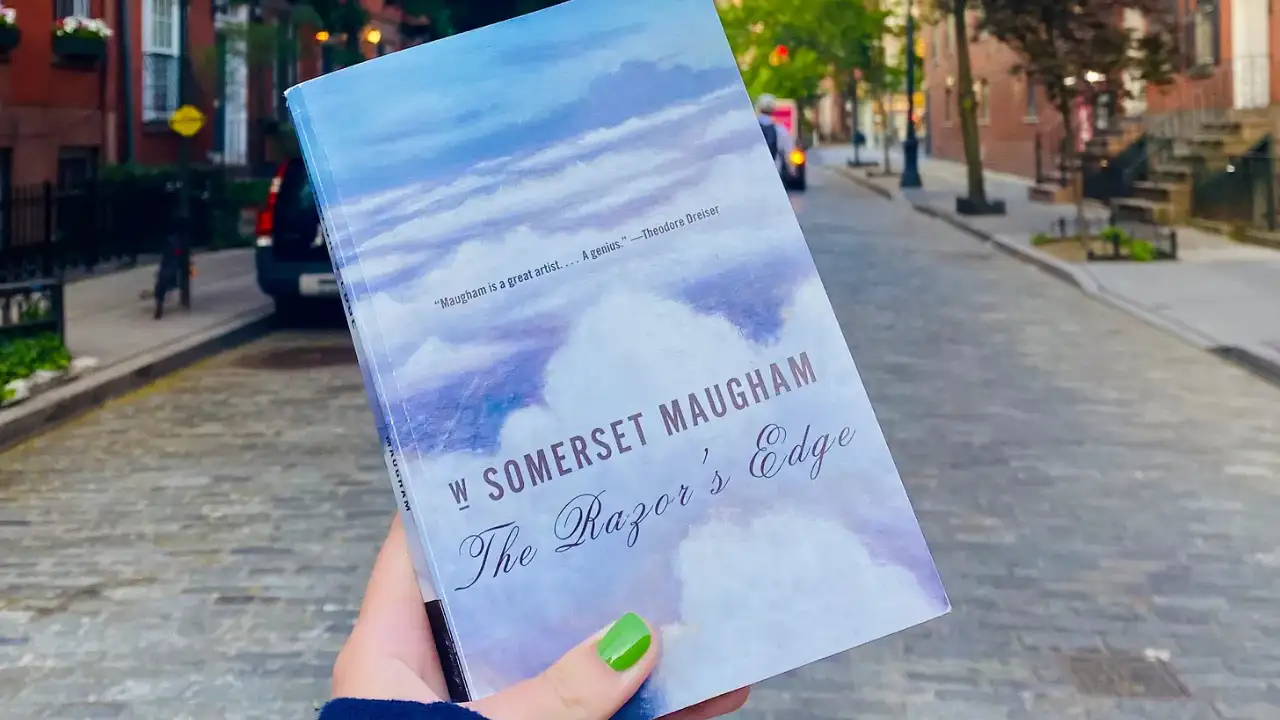Copyright timesnownews

When 'The Razor’s Edge' was published in 1944, readers queued outside bookshops. W. Somerset Maugham’s novel, with its quiet moral clarity and spiritual curiosity, sold hundreds of thousands of copies within weeks. Critics called it his masterpiece, readers carried it like a talisman through the final years of the war, and Maugham himself became one of the highest-paid writers alive. Yet today, the novel barely finds a place on modern reading lists. It sits in that peculiar space where literary merit meets mass appeal, only to be gently pushed aside by changing tastes. Also Read: The Forgotten Bestseller That Should Have Won the Nobel Prize A Quest for Meaning in a World at War The story follows Larry Darrell, a young American traumatised by the First World War, who rejects conventional life to search for meaning. He drifts through Paris, works in a coal mine, lives in India, and returns home transformed. Around him, Maugham builds a cast of characters — Isabel, who chooses wealth over love; Grey, her husband; and Elliott, the charming socialite who embodies the vanities of privilege. The narrator, a version of Maugham himself, observes them with restrained compassion. On the surface, it reads like a social drama, yet beneath it lies a philosophical restlessness that feels startlingly modern. Larry’s rejection of ambition and material success becomes a radical act of self-inquiry, a question many post-war readers recognised in themselves. A Mirror for the Modern Reader Maugham’s timing was perfect. Published during the final years of the Second World War, 'The Razor’s Edge' offered readers something deeper than escape; it offered purpose. While other writers chronicled disillusionment, Maugham asked what it meant to live well after witnessing so much destruction. Larry’s search for meaning outside the boundaries of ambition and wealth became both a reflection and an aspiration for a weary generation. Even today, the story resonates. In an era obsessed with achievement, Larry’s quiet rebellion against conformity feels more relevant than ever. His peace is not found in success, but in simplicity, reflection, and compassion, qualities our world still undervalues. The Precision of Maugham’s Craft What sets Maugham apart is not philosophical abstraction but balance. His prose is elegant yet transparent, every sentence pared down to clarity. He never imposes meaning; he allows it to emerge. Conversations between characters become miniature moral debates — ambition versus contentment, comfort versus truth, yet Maugham’s touch remains gentle. He was a master of restraint, a writer who understood that the most enduring questions need no embellishment. There is no sermon in 'The Razor’s Edge', only observation. Maugham trusts his readers to draw their own conclusions, and that faith in the reader’s intelligence gives the novel its lasting power. A Bestseller That History Overlooked In its time, 'The Razor’s Edge' was everywhere. It was adapted into films, discussed in literary circles, and admired by writers like Graham Greene. But as the postmodern movement took hold, literary tastes shifted. Readers began to prize irony over sincerity, fragmentation over simplicity. Maugham’s clear, direct style, once considered a strength, came to be seen as old-fashioned. Ironically, Maugham’s greatest success may have contributed to his later neglect. Critics grew wary of writers who were both popular and profound. In the rush to define “serious literature,” his accessibility was mistaken for ease. Yet no one who reads 'The Razor’s Edge' carefully could call it simple. It is a novel that achieves complexity through calm. A Novel for a Restless Generation To revisit 'The Razor’s Edge' now is to find a book perfectly suited for our moment. Its questions feel eerily familiar: What does a good life look like? Can we be at peace in a world built on distraction and competition? Larry’s journey may take him across continents, but his struggle is timeless — the search for meaning amid noise. Maugham’s refusal to romanticise that search gives the novel its enduring honesty. He understood that enlightenment is not a grand revelation but a steady, disciplined act of choosing what matters. That quiet integrity, more than the plot or setting, is what stays with the reader long after the book ends. Also Read: The Forgotten Bestseller That Predicted Modern Loneliness a Century Ago 'The Razor’s Edge' stands as proof that literary history is not always fair. Maugham’s novel achieved both popularity and depth, yet it slipped from the canon because it refused to shout. It is not a work of bravado but of conviction — calm, precise, and humane. In an age of noise and distraction, its relevance is reborn. Maugham reminds us that greatness is not measured by acclaim but by endurance. 'The Razor’s Edge' may have faded from bestseller lists, but its moral clarity remains undimmed. Sometimes, great writing does not win; it simply waits to be rediscovered.



